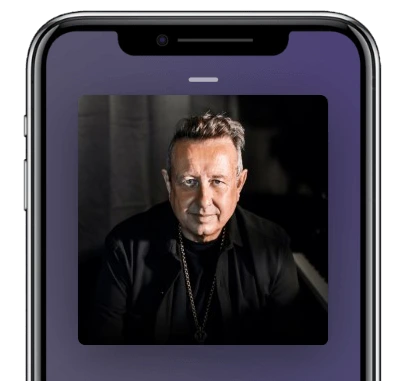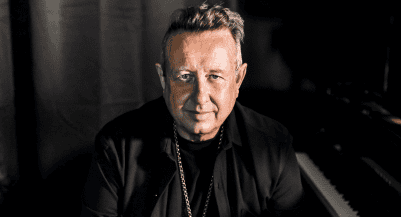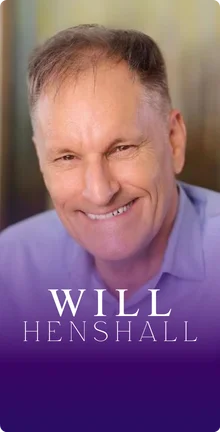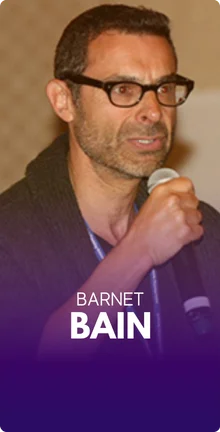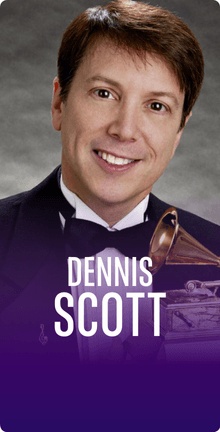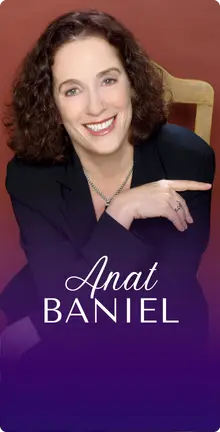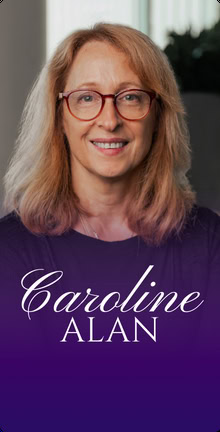In this Episode
- [10:21]Neil Moore speaks about the milestones of discovering his methods to unlock an individual’s musical ability and describes how he learned piano without reading music, instead relying on shapes and patterns.
- [20:27]Stephan and Neil discuss their spiritual beliefs and experiences, with a focus on synesthesia and its role in their lives and work.
- [25:07]Stephan shares how God became his business partner, leading to a significant change in his lifestyle and approach to business.
- [29:16]Neil talks about his personal experiences with impostor syndrome, feeling like a fraud despite successes.
- [31:57]Neil challenges traditional music education methods, suggesting they may not deliver on their fundamental charter of equipping the entire population with musical self-expression.
- [39:20]Neil emphasizes that learning music should be more like connecting dots in the sky rather than reading music with multiple languages and symbols.
- [48:09]Neil elaborates on enhancing creativity in addressing complex technological challenges, suggesting that musicianship can help develop this skill by growing the brain and increasing neural connectivity.
Neil, it’s so great to have you on the show.
It’s great to be here, Stephan. Thanks so much. It’s good to see you.
Good to see you. We know each other through Genius Network, which is Joe Polish’s mastermind community that I’ve been a part of for a number of years. I know you’ve been in there even longer than me. I have been since 2018.
It’s 2010 or 2011.
Wow. You’ve been paying $25,000 a year since 2010. That’s a commitment.
For that community, yeah. I’ve invested a lot in a number of entrepreneurial communities. Participating in those communities is one of the critical investments in my life.
Yeah, me too. I wholeheartedly agree. What are some of the other brotherhoods, communities, and masterminds that you’re also in?
I spent years with Dan Sullivan and Strategic Coach, Peter Diamandis’ Abundance360 community, which is remarkable, Giovanni Marsico’s Archangels Academy, and Steve Sims’ SpeakEasy Community. They’re the main communities that I most consistently actively engage with.
How is Steve Sims’ community? I actually had him on this podcast. He’s amazing. What is his value proposition for his mastermind?
Like-minded people support one another in what you’re taking on.
Any of the masterminds are designed to connect people with others. Like-minded people support one another in what you’re taking on. Particularly, the bigger the project, the higher the level of support that’s available, which is just wonderful.
Being around Steve is amazing. He’s just a unique character. There’s that gruff, tough appearance of Steve and that hardworking, working-class background that he’s had. The guy’s understated. He’s kind, gentle, very smart, and knows many people.
I love being in communities where I’m not even close to being the smartest person in the room. It is inspiring to be around people who are dedicated and fully immersed in doing what they’re up to doing.
Steve’s community is awesome to be a part of, but all the communities I’m a part of are remarkable. Great people all over the place, kind-hearted, huge social consciences, taking on big projects, recognizing fundamentally that, “Hey, if we’re going to raise the standard of living for anybody, we need to elevate the standard of living for everybody.” How do we increase our impact in a way that impacts people’s experience of themselves and elevates their quality of life?
For sure. Archangel Academy, what’s unique or special about that program? I love the name, by the way. I’m a big fan of Archangels.
The culture of any organization primarily comes from the person at the top. In that instance, that would be Giovanni Marsico. He’s a dear friend whom I also met through Joe Polish. Every major relationship I’ve had over the last 12 years has come about directly or indirectly because of Joe. He’s just been an amazing connector.
Giovanni has a couple of tiers to his organization. Primarily, the synergy community is younger entrepreneurs who are perhaps earlier on in their journey. It’s a 50/50 balance between men and women, which is unusual because the vast majority of communities that I’ve been a part of have primarily been predominantly men. In an environment where there are 50/50 women, that’s a pretty great balance.
I’ve got an organization that has 700 educators, and 95% of them are women. I’m very much a supporter of empowering women, and I love the energy of being around women.
The culture of any organization primarily comes from the person at the top.
Giovanni’s primary commitments are: How do we empower and impact young people or relatively new entrepreneurs who are on the pathway of commitment to becoming millionaires? His definition of a millionaire is people whose message, service, or contribution is committed to impacting the lives of at least a million people. That’s his definition of a millionaire.
The Archangel Council group is people who are further along in their journey and, for the most part, a little further down the track in the size of their organizations. Once again, it’s how we create a support network. How do we get around people where we can share the commonality of the issues, challenges, and problems? What do people find to be the best practices in addressing their problems?
That’s a similarity between all of the mastermind communities. I just like being around people that are doing great things.
Amazing. You mentioned that 95% of the staff in your organization are women. Why is that? Was that by design? Or did that just happen organically?
The truthful answer is probably both, although the first thing by design seems less apparent. My father was self-employed from a really young age and early teenage age. My dad was about 13 when his father died, so my dad left school and took on the responsibility of being the primary income earner for the family. He stepped into that level of responsibility from a young age.
One of the many things I learned from him was my parents and, in particular, my dad. He had just a great respect for women. Most women who worked in his businesses were certainly the people with the most authority. The people who are most highly paid in his organization are women.
We had a family business that was also conducted out of our home. We would often have people from my family’s business in our home. Just watching my dad over his lifetime, the courtesy, the kindness, and the respect he demonstrated for women greatly impacted me. I’ve been self-employed since I was in my early 20s. I’m 65 now, so 42 years or so.
In every business I’ve had, the majority of the people that have been employed have been women, for the most part, and that has been by design and by choice. But over the last 25 years in the journey of Simply Music, coming over here and launching it from the United States, the vast majority of music educators are women.
There’s that aspect of it being by default, but then there’s also that aspect of it where it’s like, “That’s been my functional process as an employer.” I have to say that both come into play. Certainly, in my company, the people with the most authority and highest pay are women.
Speaking of women as music educators, my youngest daughter, who is 26 now, is an entrepreneur and a music educator. She has her own piano teaching business in Orange County, California. She’s phenomenal at her craft and what she does. She’s so passionate about it. She’s going to university to study music, and she plays Rachmaninoff, Chopin, and Scarlatti. It’s really impressive.
High level.
Yeah, it’s high-level stuff, and yet she’s very accessible to her students. She doesn’t make any errors. She makes it really fun, playful, and engaging. She brings little toys, presents, and things for the kids to reward them for doing a good job, doing their homework, and things like that. She’s a great educator, too. It’s not a given that somebody is a great educator; therefore, they’re a great musician or vice-versa.
That’s right. In some respects, the two have little to do with each other.
Let’s talk about your origin story. If you could share some of the big highlights that got you to where you are now, of course, your dad was a huge part of that in the early years. What would be some of the milestones or highlights that our listener or viewer would want to know?
I’m the youngest of five, and only seven years between us. From that point of view, it was baby, baby, baby. My parents had five kids in seven years. I have an older sister and three older brothers. When we turned seven, each of the boys began piano lessons.
Creating music is a universal ability. We have to learn to embrace it, and allow people to learn new perspectives about music. Share on XMy parents said that my relationship with music was completely different from that of my older brothers, which was evident from infancy. I can’t remember that part of it, but they would say it wouldn’t matter. If there was music playing anywhere in the house, that’s where I would roll. I would just lay there listening to the music for as long as it was being played.
It keeps getting younger the more I think about it over my lifetime. I was about three or four where I have my earliest recollection. I hear music, and I see two and three-dimensional shapes. I didn’t think anything of that. That’s just the way that occurs for me.
When I began studying piano at seven, it was my turn to begin lessons. My teacher would play the songs I would be learning, and I could see those shapes unfolding across the geography of the keyboard. That’s how I developed my entire musicianship.
I didn’t learn how to read. I found it utterly unnecessary, and I found it intimidating just looking at the page. I did not need it. I always thought I was doing something wrong, that I should be learning the right way, which was learning how to read music like my older siblings were, but that just wasn’t my world. I had a certain amount of trauma associated with that.
Every Saturday, our teacher would come over to our home. One brother would have the lesson at 9, then 9.30 the next, and 10. As it got closer and closer to mine, there was this fear that I had that this would be the lesson where I was going to find out that I was cheating and not doing the right thing, which is learning how to read. I’d sit at my lesson blindly staring at the page, pretending I was reading but unfolding everything from shapes and patterns.
I didn’t know that my teacher would go into my mother and say, “Neil’s not reading. He’s just pretending. He’s staring at the page. He thinks he’s fooling me, but he’s not.” But fortunately, my mother said, “Yeah, but listen to him play. Just let him be. Let him do his own thing.” I didn’t know they’d made that deal. I went along, believing I was doing something wrong and would get found out at any moment.
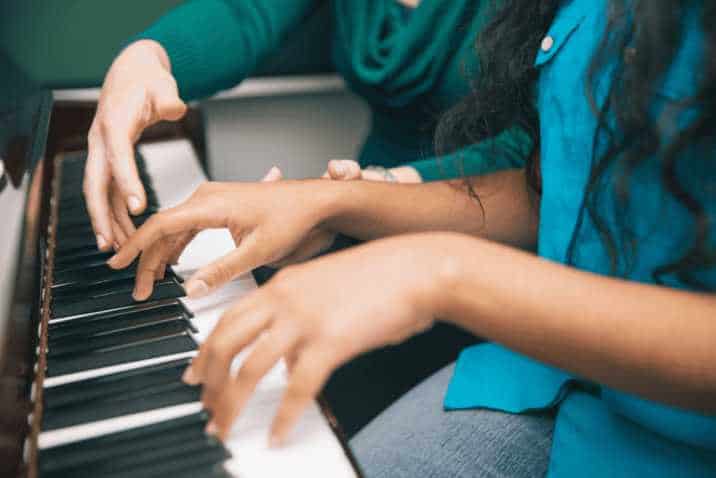
Stephan, really, it had a huge impact on me. Even going into high school or secondary school as we called it in Australia, I didn’t want to go over to a friend’s house if they had a piano because I was scared that if the parents said, “Oh, you’re learning piano,” they pull out some music and ask me to play something, I’d be found out as being the fraud. It was always a personal, private thing for me, but this was just how I learned.
Coming from a self-employed family, I was a dedicated, terrible student. I hated school. I loved learning and reading a lot from a very young age. I always read ahead of my years. I consider myself largely self-taught, but I hated school. I couldn’t wait to get out of school and just wanted to enter the workforce.
Coming from a family of self-employed, none of us went to university or college. I actually got into the restaurant industry. I had three restaurants from the early 80s until the early 90s. The goal was to get into business, do well enough, and earn enough so that I could retire young and make music. I didn’t even know what doing music would mean.
Australia is a wonderful country. It’s the same physical size as the United States, but a very small population exists. The US has an economic infrastructure designed to support hundreds of millions of people, whereas Australia only has 25 million.
One of the ways that’s significantly different from the US is that it’s such a smaller economy by comparison. As a result of that, there are few opportunities. The likelihood of being able to have a successful profession in music is remote. My thoughts were to do well enough in business, get out of that young, and be able just to do music, whatever that was.
I was successful as a restaurateur, but I wasn’t successful in keeping money. I made a couple of really dumb decisions and went through a complete financial wipeout. That was a really fantastic experience for me. There were two things that I learned in going through that complete wipeout.
I commit myself to music and trust that a pathway will reveal itself.
One was this one particular day where—I won’t go into the circumstances—something had happened. We were just wrapping up our lives, and everything was being taken. I had this experience of, “Wow, I’m losing everything that I have, but I’m losing nothing of who I am.” At the time, that was a really important distinction for me. I felt completely at peace, whole and complete.
Second, I suddenly saw my life and pictured it as an equation. It’s like, “Oh, okay, I’ve been invested in business to earn money to do what I loved one day.” It just occurred to me as a broken conversation. I always believed I belonged to music and was meant to do it. If there is such a thing as divine design—I didn’t care whether that’s true or not; I just give value to believing that it’s true—I’m going to commit myself to music and trust that a pathway will reveal itself.
Here I am in my 30s. I’m married, I’ve got three children, I’m broke, and I have no income. And here’s me saying, “I’m going to pursue music.” I thought at that time, “Well if I’m going to make music—I don’t even know any of the languages. I had no real formal knowledge. I couldn’t read music. I had no theoretical understanding. I was just a self-taught player with this unique way of looking at things—I better return to some studies.”
I started doing classes in music and began expanding my theoretical knowledge. There was a man in Australia who was teaching a traditional program but a different approach to reading, and I needed to learn how to read. I did his program. He wanted to expand his organization of teachers. With my background in small business, my relationship with music, and now, with this newfound approach to learning to read, I thought, “I could teach this.” And I bet I could do this successfully, which I did.
There were a series of reasons behind this, but we just decided. My wife and I felt we just wanted to come to the United States. For both of us, we felt that there was an epicenter here for me, for music, and my wife had been an exchange student in the United States for her senior year of high school. She wanted the opportunity to live here, so we decided to come to the United States. We were flat broke. I came here with my wife, our three children, our life possessions in three suitcases, $5000, an idea, and a belief that I had something to contribute.
I started teaching, and I very quickly built a studio. I very quickly got a reputation as a successful teacher. I got this phone call one day from this government agency. They said, “We’re working with this eight-year-old boy who is blind. We think we can restore his sight. He’s going into the hospital regularly to have procedures done. It’s tough on this kid. We’d love him to have some activity. Do you think you could teach him music?” I said, “Yes.” I just jumped at the opportunity.
It wasn’t until I jumped at the opportunity and afterward I thought, “Heck.” The only thing I’ve been taught to teach is this traditional reading-based approach, and here’s a kid who’s blind. He’s not going to be able to read. “What the heck am I going to do?” Stephan, it wasn’t until that moment that it occurred to me consciously for the first time. “Hang on, I never learned to read. What was I doing? I’ve never thought of it before.”
The corpus callosum is the creative control center of the brain, and brain scans show that the corpus callosum is larger in people who learn music. Share on XIt had happened, and it was invisible. It was so organic, but I’ve never consciously thought of it. I sat down and just sat at the piano. I started just constructing something. It’s like, “Oh, I can see what I’m doing.”
I started to create distinctions, describe things, and create terms of art. I thought I could show this kid how to feel his way through learning how to play based on the feel of the shapes and patterns. That’s what I did. He was doing incredibly well. He’d only been learning for a few months. He had a whole repertoire of stuff that he was playing.
I said to his dad one day—the boy’s name is Wade. “Hey, are you happy with Wade’s progress?” His dad said, “We’re not only happy with it, but he’s teaching his four-year-old sister how to play, and she’s blind too.” Even when I tell the story, it has a physical impact on me. I didn’t know what happened; I just knew something had happened.
I thought, “Wow, if I could teach this eight-year-old boy who’s blind how to play in this approach, shapes and patterns, and he can turn around and teach his four-year-old sister how to play, and she’s blind too, what would happen if I introduce this to typical learners?” I thought then that it might just be this fun little music preschool before we got to real music, the traditional approach to learning how to read.
As I started to share that with my students, I saw a completely different experience in the quantity of music they were learning, the quality of that music, how quickly they were learning, and how easily they were learning. I thought, “Well, this has just got to be because it’s so organic to me.”
Fortunately, I had access to other educators. What would happen if I shared this with other educators? I began sharing the concepts, and they said, “We hadn’t seen anything like this.” It’s a completely different experience for the students; it’s a different experience to teach, and the students are doing so well. I thought, “Wow, I might have something here.”
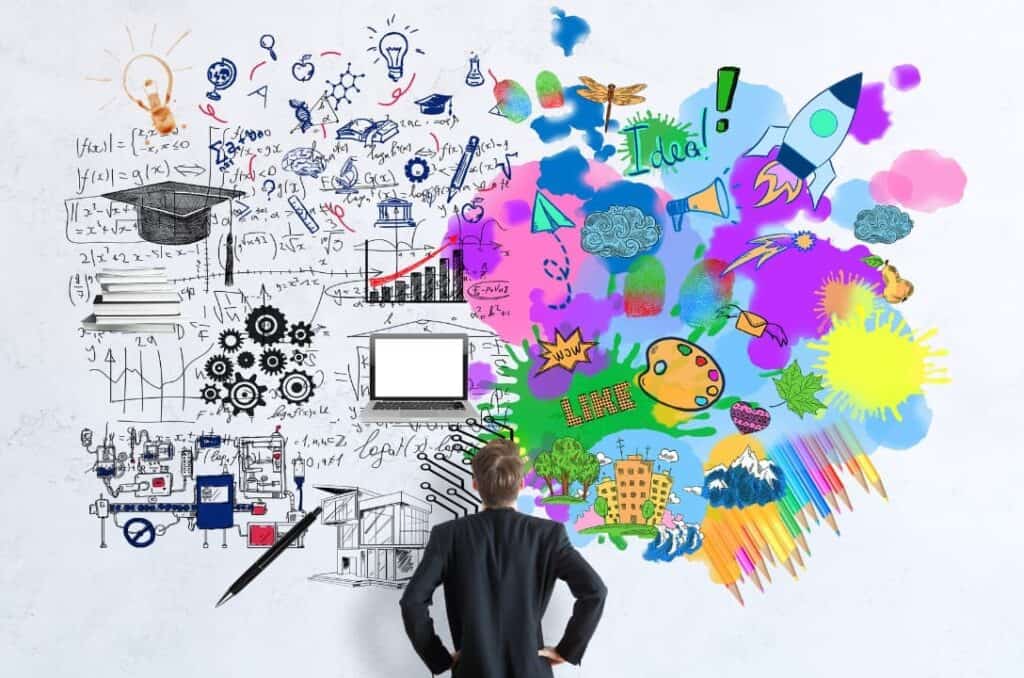
I went into a laboratory setting. Fortunately, I had a really large studio. I was teaching 125 students privately every week. I was doing about 65 hours of face-to-face teaching. That became a fantastic R&D environment for me to stress test this as a method, with the question coming, “How far can I take this? Will it apply to contemporary, classical, gospel, blues, jazz, composition, and improvisation? How far can we go before introducing the more formal, theoretical aspects of music learning?”
That gave the basis to the genesis of that whole thing. When people look at us, it might look from the outside that we’re a large organization. We have a student community across 135 countries and about 700 educators who teach the method exclusively. But in the bigger scheme, we’re just scratching the tip of the iceberg. And we are at a unique time right about now.
I know that’s a super long answer to a simple question, but I’m not good at giving short answers. My staff came in and said, “Hey, Neil, I’ve got a quick question.” It might be, “Well, look, I’m sure the questions are quick.” Yeah, it’s probably going to save some time.
Yeah, I’ve got a quick question. Well, I’ve got a long answer.
It’s like that. Oh my gosh.
That’s awesome, though. It’s so inspiring to hear you share that story. When you said that thing about divine design, of course, I believe that too with all my heart and soul. I have been blessed with the connection. Many of us have or have been awakened, too, because we all have it. We all have this psychic ability, this connection to the Creator into the upper worlds and to our unseen support team.
When you shared the story about the eight-year-old blind boy, the words that came out loud and clear were that it was a divine setup for you. That had to happen because that was your turning point. That was the door opening to you, utilizing that special gift that you were given. That synesthesia you discovered at age three became a business, a movement, and a world-changing methodology. It’s just beautiful.
Thanks, Stephan. That aspect of it, too. Even this relationship that I had was very evident in infancy. I believe that I was probably born with this pre-installed. There’s been a whole series of miracles along the way. It’s been a complicated process to build this organization. I’ve never built, run, or managed an international organization.
We’re at this unique time where we’re on the cusp of a line of demarcation or a complete shift in what we’re doing and where we’re heading.
Frankly, I don’t even think I should be running the organization. I’m not good at it. What it takes to comprehensively and successfully manage the minutiae in an international organization isn’t my unique ability. I’ve done an adequate job at best and kept it alive. We’ve got incredible proof of concept over the decades and have millions and millions of lessons being taught. That’s been amazing. We’re at this unique time where we’re on the cusp of a line of demarcation or a complete shift in what we’re doing and where we’re heading.
Is it time for you to hire a CEO? Are you already in that process?
We’re in that process. I don’t know whether it’s a CEO, but certainly a version of that, whether it’s a general manager. I need to bring on an operations person. Most of our systems are domestic, so we don’t have immediate access to important decision-making defining data. We’re doing a complete rebuild of our technology, and we need to look seriously at the role of AI integration in this.
I need the right marketing partner. We need an operations person, the right financial person, a general manager, or a CEO. I need to step out from behind the curtain. We’ve grown up largely from word of mouth. When I look at our educator community and its growth, I’ve never, ever constructed, articulated, rolled out, and managed a marketing plan. It’s just grown. I’ve let it just grow organically from word-of-mouth entirely.
One of the big factors of this is people don’t even know about the program, by and large, on a larger scale. We’re in such a unique time in human history. It’s a juxtaposition of several things that I think positioned us. We are perfectly poised right now to completely transform not only our direction but also our growth. Our linear growth is great, and it’s been wonderful.
In many respects, there’s no better way to grow with confidence, authenticity, and integrity than when someone calls you and says, “I’m doing this thing, I love this thing, Stephan, and you should be doing this thing.” When it’s coming from someone who you know well and trust, the power of that word of mouth is distinct from the anonymity of social media. When it’s coming from your inner circle, a certain credibility comes hand-in-hand with that. That’s been the basis of how we’ve grown.
A teacher called her sister, and she told her best friend about it. Her best friend’s got another best friend who’s a teacher. There’s been this organic growth, which has been fine, but it’s completely inadequate to develop the velocity acceleration to accelerate up the knee of the exponential curve. That’s what we need right now because of the uniqueness of this point in human history, which is the most thrilling point.
Amazing. One thing that made a difference in my business—maybe this is what you needed to hear today; I don’t know, we’ll see—is that God became my business partner about 18 months ago. I didn’t take it for granted. I didn’t assume that he would say yes, but I did ask him, and he did. I felt the yes, or I heard the yes in my head. Things have just been radically different for me ever since.
I used to be on the road all the time, traveling to masterminds, conferences, and trade shows. I travel, on average, maybe twice a month. That was tolerable. It was fun when my wife went with me, but we have a three-year-old son now, and I have no interest in business travel for the sake of it. I don’t want to be on the road. I don’t want to be a road warrior.
I haven’t had to, not since God became my business partner. These leads show up out of nowhere. I have not been at a conference giving a presentation for several years. I think I maybe did one in the last few years, but pre-COVID, I would be on the road all the time. I could still do that if I wanted to, but I don’t want to.
We live life forward and understand it backward.
That’s the thing that if you want to be behind the curtain, or you want to be in front of the curtain, or you want to change your role to be more of the visionary. Then you bring on the integrator, or you want to be the integrator, and you want to bring on the visionary; whatever it is, you can achieve it because God’s your business partner, and he’s lining things up for you.
The leads, the staff, the vendors, the strategic partnerships, it’s all just coming. It doesn’t mean sitting on the couch and doing nothing. We live in a world of action. But if you take appropriate action, know you’re being carried along the river. You do not have to swim it anymore.
That’s great, Stephan. It’s like that. What aligns with my relationship with things is that we live life forward and understand it backward. I go interact with my days, and though I’m making the decisions, “I’m choosing to do this. We’re going to go here, and we’re not going to do that, etc.” It has that quality of I’m the one who’s shaping the direction.
At any point in time, if I stop and look back at the synergy between one step and the next, the randomness that has organized itself so beautifully and apparently so meaningfully, it just doesn’t make sense to me any other way than to see that there’s a divine hand in this.
Even the stuff that you remember, even the little quotes or the stories from books that you’ve read, or from movies that you’ve watched, the different kinds of movies, TV shows, and everything that you have watched over the years, what you’ve retained, the different bits of knowledge from your studies from school and everything, it’s all divinely orchestrated. It’s all through that divine design.
It doesn’t click until you have that awakening moment, and you can look backward and connect the dots. Before that, it just seemed like things just happened, but nothing just happened. There is absolutely zero randomness. Randomness is not random. Once you come to that realization, or that’s been revealed to you, wow, this whole game that we’re playing called life takes on a whole new level of meaning, purpose, and value. It’s a game-changer.
I’m right there with you on that. Thank you.
You mentioned earlier that there are a whole series of miracles. I’m curious to hear what some of those are.
Even at a practical level, there are times when we’ve had something where we must put it in place, and I just haven’t had the resources to put it in place, but it’s been necessary. Sure enough, we will get a letter from the IRS saying, “You overpaid your taxes. Here’s a check.” We look at the check, and it’s $3 more or less. The totality is what we needed, those sorts of things.
We’ve had multitudes of those happen over the decades, particularly in the area of resources. I don’t regard it as being as banal as just money because I’ve learned very early on that you can’t separate the financial resources as the fuel of the organization from the vision itself. It doesn’t matter how gorgeous the Ferrari is. If there’s no gas in the tank, it’s going nowhere.
The need for us to have resources becomes the fuel that allows us to move forward with momentum.
The need for us to have resources becomes, at a practical and functional level, the fuel that allows us to move forward with momentum. We’ve had many situations like that, where things have come up, where there’s just been a very practical need, and it’s been provided effortlessly with apparently no effort or undertaking of our own.
It’s such a clear message when it’s within a couple of dollars of exactly the amount you need. I love telling this story, which I’ll just share very briefly. I shared it before here on the show. My friend, Angelo, is an entrepreneur. He’s faith-based and everything. He was at a diner with his family, and he got a nudge from above to give everything in his wallet, which was $109, as a tip to the waitress.
She started crying once he said, “How does a $109 tip sound to you?” She showed the text message exchange from earlier that morning with her mom, who said, “I need $109. I can’t afford the medicine this month.” The daughter said, “I can’t afford it either. I can’t pay my own bills. I’m sorry.” Here, it shows this guy randomly with $109 as a tip.
I love it. That’s fantastic.
It’s so cool. Let’s go back to this idea of, “I’m going to get found out.” That’s the classic message or tape running in the head of a person suffering from imposter syndrome. I’m going to get found out as a fraud. Tell me about your experience of imposter syndrome, your understanding of it, and how you not just conquered it but danced with it and transformed it.
As a kid, it was just very real for me that there was this way that I should be doing something, and I’m not. If I were to be found out, I would get into trouble. I won the parent’s lottery in respect. My parents were beautiful. If that had been something that I was doing that I shouldn’t have been doing, I wouldn’t have even been getting into trouble. That’s not even who they were, but for me, it occurred that was very real.
That continued right through. Even from the point of view of when I returned to music studies and then decided that I would teach, it’s like, “Who are you to teach? You’re not an advanced musician. You don’t have theoretical knowledge by any effective standard measure. You can’t barely read. You’ve only learned the ability that this program has enabled. You have no qualifications or credentials in a world where it’s regarded as an essential criterion for being a professional educator to be formally qualified to have a degree in performance, pedagogy, or whatever the case may be. I didn’t have any of those things.”
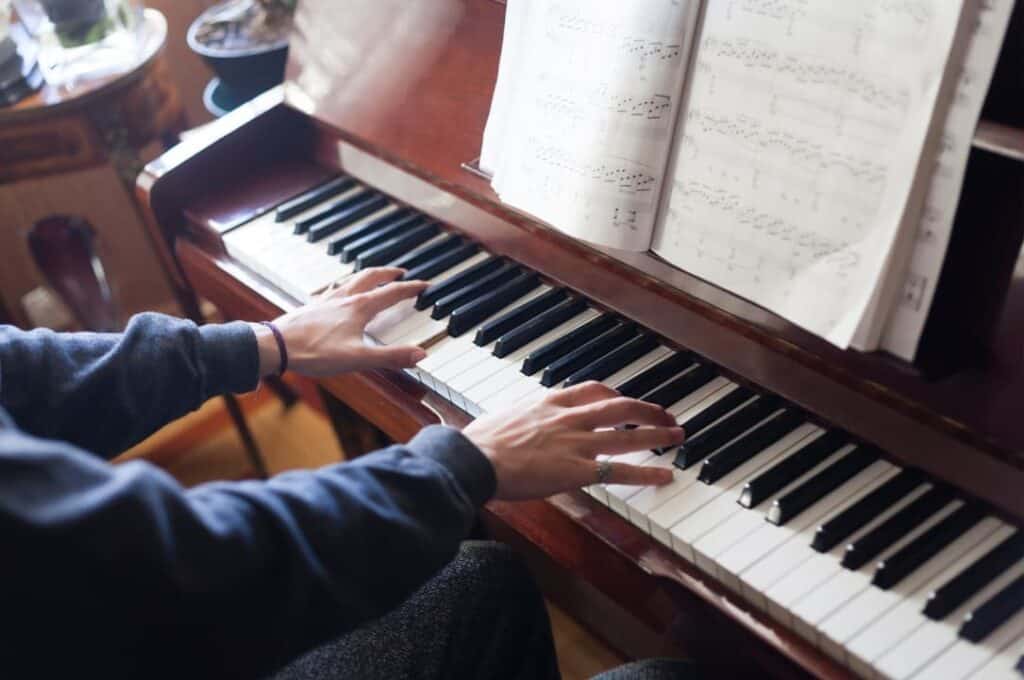
There was that aspect, like, “Who am I to step into this field?” But at the same time, I had a lot of real-world evidence from the point of view that I was good at what I had learned to do and could play well. Many of those people over my lifetime were formally trained, were formally educated, and had gone right through the graded learning system.
Most commonwealth countries have a far more structured system of learning than the United States. Whether it’s Trinity College or in Australia, it’s the AMEB (Australian Music Examination Board), where you go through your grade examinations each year, etc. I hadn’t done any of that. But I was around people who had gone through that, and they didn’t play as well as I played.
When I looked at the results my students were getting after ten lessons and the results their students were getting after 12 months, it’s like, “Well, there’s a certain real-world evidence that I’m getting from doing this. “
What happened to me was transitional. It was evolutionary, not so revolutionary, from the point of view of this just became very clear to me, based on the evidence of what I was seeing and experiencing, that this is really what the world needs.
I’ve got great respect for musicians like your daughter who have gone through the rigor of what it takes to elevate to the level of adult concert-level performance. That’s an Olympic effort that’s needed. It’s a vocational effort that’s needed to be able to do that. But it’s really not what the vast majority of people want.
There’s a huge consequence in heavy populations, all human beings without exception. All human beings, no exceptions, everybody is profoundly musical, yet we live in this culture where we’re under the illusion that some people are musical and other people are not. That is not true. That is an illusion. Largely, that illusion has been proliferated by music educators who come from the belief that some people are musical and some people aren’t.
We live in this culture where we’re under the illusion that some people are musical and other people are not. That is not true.
For many people, they don’t quite reach the standards that they’re being asked to be able to elevate to adult concert-level performance. They’re left with the feeling that there’s something missing from them. They don’t have the commitment or the discipline; most commonly, they don’t have the musical talent. It’s like, “No, we’ve got to understand that all human beings are profoundly musical. We’re so musical; we’re utterly oblivious to it.”
If you and I were walking down the street together, we’d be completely engrossed in conversation. What we’re oblivious to when we’re in conversation is left, right, left, right. Our walking is just perfect. We’re having a conversation and not even thinking about it. Just like right now, I’m having this conversation. Right underneath it, left, right, left, right. That’s incredibly complex, musical self-expression, where we’ve now got polyrhythms functioning in this incredible marriage between this beautiful, smooth, rhythmicality of our feet and the incredible complexity of speech.
Even the person who says it might be fine for everybody else, but I haven’t got a musical bone in my body. I say to that person, “Look, I hear what you’re saying, but I need you to hear what you’re saying. Have a listen to it. Listen to the rhythm of what you just said. You said, ‘I haven’t got a musical bone in my body.’” We can’t even utter a single sentence without demonstrating an incredible mastery over extraordinarily complex musical concepts.
It’s remarkable how human beings are. We’re getting ready for bed at nighttime, and we pick up a toothbrush. We’re at a concert, and we applaud. We’re not thinking anything of it. We are demonstrating this incredible musicality all day, every day, this musical species, and yet what is it that after 300 years of formal music education, we don’t even have a fraction of a percentage of the population that can play?
At some point, we’ve got to ask, “Is the methodology delivering on its fundamental charter?” The fundamental charter of music education is to equip the entire population to be musically self-expressed. After 300 years, it’s about time we say, “Hey, have we got it right for the vast majority?”
That’s what happened with Simply Music. What’s extraordinary about Simply Music is how ordinary it is. When you look at it at a neurological level, the brain by design is a pattern-seeking device. If you can show something to somebody in a way that’s homogenous to how the brain wants to assimilate information, it translates naturally and easily.
If we take this natural musicianship, it’s now speaking in our hands, feet, and bodies. If we provide them with know-how that’s done in a way that’s aligned with the neurological structure of the brain, it produces immediate musicianship on the instrument. So, we had this real-world experience.
Simply Music is extraordinary because of how ordinary it is. When you look at it at a neurological level, it is a pattern-seeking device.
It wasn’t something that my imposter syndrome didn’t get transformed by me or me working on it. It got transformed by the real-world evidence that I was getting back from what students were achieving, and in turn, what teachers were saying, and then what their students were saying.
I got graced with it instead of trying to figure it out psychologically, and by processing, it’s almost as if the evidence was like rain. I just needed to stand out in the rain until I got saturated, which I did.
Yeah, very cool.
A long answer.
No, that’s perfect because it takes this listener or viewer through the journey of transforming something that is a belief. It’s not even a true belief. It’s a disempowering belief of, “Who am I to do this thing, to teach this thing, or to show off in a public environment this particular ability, gift, or whatever, to who am I not to? Who am I not to share this with the world?”
The overwhelming evidence is to the contrary of my initial belief that I’m a fraud and that I’m not good enough. It’s completely contrary to that. I guess it’s the synesthesia, but correct me if I’m wrong. What’s the experience for somebody who doesn’t have that ability?
The first thing is people often say to me, “Well, you’re a synesthete, but I’m not.” How it is not as magical, mystical, beautiful, and wonderful is that fusion of senses that synesthesia is. This is far more rudimentary than that.
Typically, if someone has synesthesia, I’m not sure who’s listening to this, but sensory pathways typically fuse when we’re very young. As we get older, we start to get this separation of the sensory pathways. For some people, what happens is certain sensory pathways don’t separate.
They might remember names, or they see a color when they hear a name. Some people do math equations, and in the math equations, they have particular smells. The sensory pathway of smell is fused with the analytic aspect of math or whatever the case may be. This isn’t anything like that. This is far more simple. As I said before, what’s extraordinary is how ordinary it is.
This is more like if we were to go out to the sky at night time in a dark night, and you just look up and see a plethora of stars, but if someone said, “Hey, look, if you connect this star, this star, and this star, it creates a constellation. All we’re really doing is distinguishing a shape out of the dots.”
Similarly, in any country in the world where music or piano is taught, the predominant approach is a reading-based approach. Let’s learn how to read music, and your ability to do that will dictate your ability to play.
As a result of that, when you’re now having to convert the language of the pitch, the language of rhythm, language of expression, dynamics, and form, reading music shouldn’t be called reading music because, typically, there can be up to seven languages occurring at any time on the page, seven different languages with seven different symbolic representations. Reading music should be called multiple simultaneous language translation because that’s what’s required.
We need to learn to think creatively to address the complexities of the ever-evolving technological world. Share on XThat means that by design, it’s a multi-thought process experience, but the brain is the single thought process device. If you’re trying to process multiple thoughts, that’s like taking five lanes of traffic and trying to get it through one available lane. There’s a gridlock and a backlog. That’s why so many people have experienced things with such difficulty. That approach is far more theoretical and technical. It biases the experience to the left hemisphere of the brain.
Whereas, as we know, the brain is a pattern-seeking device, if we get our attention off the page and just look at what’s happening in the instrument, look at this note that you’re playing, then this note that you’re playing, this note, then this note, and then this note, can you see that that’s just like two mountains? It’s just up to the peak, down to the valley, up to the peak, down to the valley. It’s just a shape.
Or if I were to take a phrase and I would unfold that on the instrument, it’s going from white note up to black note to white note, back to black note, back to white note, back to black note, back to white note. It’s creating an M shape, for example.
When you look at what’s happening on the instrument, it’s like a game of connecting the dots. If you imagine one note connecting to the next, connecting the next, and then joining those dots, it creates shapes, pictures, and images.
It’s very easy for the brain to remember, recollect, and translate into the hands because it’s not being backlogged and overwhelmed with data. It’s not dealing with data entry, and it’s just drawing on the natural musicality in an environment aligned with the brain.
That’s why it’s not synesthesia. Ordinarily, synesthesia is very specific to that person. Mine is more like those diagrams where you look at it, and it’s an old woman, and then you look at it, and it’s a young girl. Nothing’s changed in the diagram; there’s just been a perspective shift. This is more about that than all that, or it is certainly a significant component.
Got you. When you’re talking about these shapes and turning them into mountains and different things, I remember the story of Mozart and how he was able to remember exactly a piece that he heard only one time and transcribe that into musical notes and everything. I think he was still a young boy at that point. That was quite impressive.
That’s a piece of music, too. I think it was from Allegory or whatever the composer’s name. Miserere, I think, is what it was. Anyway, that supposedly was true, and I’m not doubting that. I’m curious to hear. You’ve heard the story before, I’m guessing?
That was pretty much just a standard condition for him, his ability to be able to hear something and just be able to replicate it. That was part of his genius.
What occurs to me about that is it was a similar gift you have. You were both born with a similar brain wiring that allowed you to see it all in a picture.
It’s tough to draw that correlation, even at a personal level. Any comparison with me and Mozart, I was like, “Yeah. I see elements of it where it does make sense.” I’ve had the privilege of training thousands of music educators. Here’s me, a high school dropout. I didn’t finish 10th grade. That was it for me, and I’m training people with doctorates in performance, in theory, and scores and scores of music directors and people with degrees in performance and pedagogical theory. I’m not any of that, but I am what I am. What I have, I believe, is relevant to the world at large.
When I look at and share these concepts, it’s really interesting, particularly in the highly trained and formally educated musicians. They say, “You know what, I’ve always done something like this now and haven’t even realized.” But now that I see what you’re doing, I often think of music this way. It’s not even that it’s that unique. It happens for a lot of us in a lot of ways.
We learn the alphabet, then we learn to bring the alphabet together, and it creates words. But when we’re reading, we’re not reading the letters of the word; we see it as a whole. We’re not even reading the individual words. We are reading almost the silhouette, the shape of the word itself, and the shape of the phrase we’re reading at any time. This is more like that.
I am what I am. What I have, I believe, is relevant to the world at large.
My role isn’t so much that I created it. I get lots of people saying, “Wow, you’re a genius.” I’m not. If I’ve played a role, this way of looking at music was with me before I was even aware of my existence. Let’s get clear that I’m not the creator of this. This was from a higher source. I just got to be the middle guy.
If I played a role, my role is that I’ve spent tens of thousands of hours codifying it into a system, structured, scaffolded curriculum, creating terms of art, languaging distinctions, and creating frameworks. I have a deep interest in the structure of human behavior that comes into play in how we do it. I’ve got a strong relationship with composition.
The curriculum is built around a large collection of my compositions, all that stuff, which has been wonderful. But I didn’t create this; this way of looking at music is natural for everybody. We have to shine a light on it and allow people to have that switch and perspective that seems natural and organic. We get to do that with students of all ages—children, teens, and adults.
Ninety-five percent of music education, I believe, is between 5 and 12 years of age, but in our world, this method accesses the brain so differently that half of our students are between 35 and 100 years of age, total beginners. It’s important because of where we’re now in human history. That’s perhaps the most important point right now.
I’m an optimist about the future. Down to the genetics of my DNA, I’m an optimist. We’re on the cusp of such a unique time. We’re only scratching the surface. What we will witness over the coming decade is the arrival of an entirely new level of advanced technologies that I believe will completely redefine life on Earth. It will redefine what it means to be human.
When we see the impact of artificial intelligence, sophisticated, virtual, and augmented realities, fully self-guiding transportation, breakthroughs and lifespan extension, connecting our brains to the cloud, microtechnology, and nanorobotics in our bodies, witnessing the birth of humanity becoming a multi-planetary species, astounding technology will be everywhere. It’s redefining life on earth and will require us to rethink who and what we are.
Artificial intelligence and augmented realities are redefining life on Earth and will require us to rethink who and what we are.
As much as there’s so much about that’s unpredictable, one thing that we know is that we need to think more creatively than ever before just to figure out how we’re going to address the complexities of the technological world that we’re heading into.
For us, I believe that humanity needs to become the most creative version of our species ever. We are in the infancy of a new area of understanding about musicianship and learning to play.
We know now that the prior notion that we had, that the analytical person was a left-brained person and the creative person was a right-brained person, is not true. Creativity has far more to do with how connected both sides of the brain are, as well as how impacted both the short-range and the long-range connections are between different areas of the brain.
We’re learning that we’ve got this massive bundle of millions of nerve fibers. The corpus callosum connects both sides of the brain. As I call it, the creative control center, it has millions of nerve fibers. What we’re learning about musicianship, learning to play, is that it grows the brain. It increases neural connectivity. Brain scans showed that the corpus callosum is larger in people who learn music, and there’s more connectivity.
As much as we love music and all the benefits, the emotional benefits, the social benefits, the physical benefits, the psychological benefits, that beautiful form of self-expression that it is, all of which is wonderful, but what we now have the opportunity to do is to understand more powerfully and with more relevance, that musicianship provides the brain with this critical neurological nutrition that grows the brain, increases neural connectivity, helps develop our creative capability, and helps to future prepare us.
From that perspective, I think it’s more important than ever that we start to understand that just like we might eat well, we know we need to take supplements. We need and have this opportunity now to say, “Hey, look, musicianship is worthy of a higher priority in our lives because of how it’s going to help you deal with the type of thinking that’s needed for the future and how it’s going to help the future prepare your children.”
For me, where I’m at is I’ve got to get out from behind the curtain, start speaking more, and have an opportunity like this to speak to you and your community about the importance of developing creative capability in the role that musicianship can play.
I’ve got my first TED talk coming up later this year. There’s more down the pipeline. I’m right in the midst of talking about a project I can’t go into now. This will open up an opportunity for us to transform exponentially, transform our outreach, and grow the opportunity on a global basis and a whole new level. That’s where we’re at.
That’s exciting. I’m excited for you, and congratulations on what’s coming for you. I’m sure it’s going to be transformative, and it’s going to catapult you to a whole new level.
I know we’re out of time. If our listener or viewer wants to pursue this, do they have to go through one of your 700 educators? Can they do an online course? What’s the next step for somebody interested in whether they are near an educator or not?
There are several ways of learning. I believe that the superior way of learning is live in-person lessons with a trained educator, where that person has both the tactile as well as the visible and oral opportunity to get to know your learning idiosyncrasies and can tailor and curate customize the experience to you in a live environment. I think that’s the superior learning environment.
However, these days, learning regularly with a teacher but doing it online is also very successful. Not as successful, but still wonderful, would be a self-study program.
One of the things that’s important to me is making world-class education available at no cost. I have this beautiful self-study program that’s completely free. It’s not a marketing thing, and it’s not an upsell. There’s no subscription, free trial, or put your credit card in, none of that. It’s just free, world-class education that would give people an experience of my method.
People can find out about that. It’s simplymusic.com. You can get to it by that, or if you want to go directly to the hub where it’s housed, just go to pianoonline.com. Like I said, “It’s a free program.” It’s gorgeous, beautifully filmed, prepared, and has audio soundtracks and additional soundtracks where you can improvise along with and get that experience of playing in the band.
Music provides critical neurological nutrition to foster brain growth and increase neural connectivity. Share on XWe’re not starting with a single note, less interesting songs. You start learning immediately. It’s typical for students to be playing a repertoire of some contemporary, some classical, some blues, some ballads, and arrangements from their very first lessons.
Amazing. Wow.
You need about 15 minutes a day, most days a week. If you can do 15 minutes a day, four days a week, you’re not only going to be able to bring musicianship and have that experience—it’s such a beautiful form of self-expression—but also knowing that you’re helping neurologically develop your creative capability and helping the future prepare you. It’s a powerful and important thing.
You’ve inspired me. I always had in the back of my mind that I really should have pursued piano because I believe I still have a gift for it, but I’d never pursued it.
It’s patient, and it will wait for you. It’ll just wait till you’re ready.
It’s been waiting a long time since high school. It’s time to reawaken that. Yeah, thank you.
Yeah, it is.
Awesome.
Thank you, Stephan. Very generous and kind of you to have me on your show and have an opportunity to speak to your community. I think you’re awesome.
I think you’re awesome, too. You’re changing the world; you really are.
Thank you. Thanks for your patience with my long answers.
It’s great.
I look forward to seeing you at one of the Genius Network events soon.
Yes, absolutely. Listener, I encourage you and prod you to do something with this. Just go on to the Simply Music website and check out the self-study program, the pianoonline.com program, or look at finding a teacher in your area. Do something about this.
Don’t just say, “Wow, it was interesting. That was a great story.” Apply it in your life because we live in a world of action, and you need to take action, too. We’ll catch up with you in the next episode. I’m your host, Stephan Spencer, signing off.
Important Links
Connect with Neil Moore
Businesses/Organizations
People
Previous Marketing Speak Episode
Previous Get Yourself Optimized Episodes
YouTube Videos

